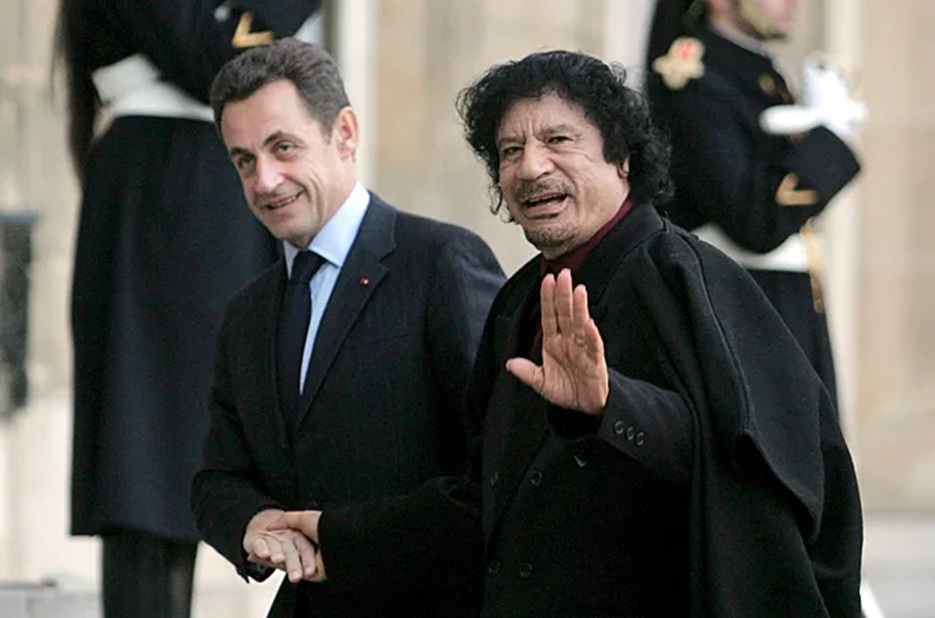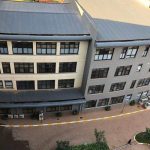The decision to urge the International Criminal Court (ICC) to undertake a preliminary investigation into former French President Nicolas Sarkozy’s role in the Libyan crisis stems from a combination of legal, moral, and geopolitical concerns.
This analysis lays out my reasons for taking this stance, particularly in light of his actions during the NATO-led intervention in Libya following UN Security Council Resolution 1973 and his recent conviction in France for corruption and campaign finance violations.
My first task as the voice of the voiceless is to see Sarkozy’s role personally investigated in the Libyan crisis. The Manipulation of UN Resolution 1973 has never been investigated by a competent court. UN Security Council Resolution 1973 authorized the use of “all necessary measures” to protect civilians during Libya’s 2011 civil war.
However, Sarkozy’s government, in collaboration with NATO allies and AUC officials then, went beyond this mandate. The intervention resulted in regime change, the killing of Muammar Gaddafi, and the destabilization of Libya, leading to widespread chaos.
Sarkozy’s aggressive push for military action raises questions about ulterior motives, including economic interests and personal vendettas, rather than genuine concern for civilian protection.
There are consequences of the Intervention. The NATO-led invasion dismantled Libyan state structures, creating a power vacuum that allowed extremist groups like ISIS to gain a foothold.
The ripple effects included regional instability, human trafficking, and the suffering of Libyan civilians—outcomes starkly at odds with the resolution’s stated objectives.
I believe Sarkozy should be held accountable for these outcomes, as his government played a leading role in the intervention.
There are serious allegations of Personal Interests in Libya. The evidence that has surfaced suggest that Sarkozy had personal financial ties to Gaddafi, including allegations that his 2007 presidential campaign received illicit funding from the Libyan leader. Which later the court found him guilty
This creates a plausible conflict of interest, further undermining the legitimacy of his actions in 2011.
Violation of International Law and the overreach plus the abuse of UNSC mandate by Sarkozy personally.
NATO’s actions, under Sarkozy’s leadership, violated the principles of proportionality and necessity enshrined in international law which I want the court.
The use of military force for regime change was neither authorized by the UN resolution nor justified by the situation on the ground.
Such actions set a dangerous precedent for abusing international mandates to advance geopolitical agendas. I will therefore, in the nearby future move to ICJ for interpretation of the principles of proportionality and necessity in International law.
It is now apparent that War Crimes and Civilian Harm took place in Libya and they continue to take place today. The indiscriminate bombing campaigns and failure to protect civilians post-Gaddafi regime change may constitute violations of international humanitarian law.
As one of the architects of the intervention, Sarkozy should be investigated for complicity in these actions.
It is again on record that Sarkozy’s Legal Troubles in France open up a huge Pandora box that we need to bring to international scrutiny. The Convictions for Corruption brought him to limelight.
Sarkozy’s conviction in France for corruption and illegal campaign financing casts a shadow over his integrity and decision-making during the Libyan crisis.
If Sarkozy engaged in corrupt practices domestically, it is reasonable to question whether his international decisions were similarly influenced by personal gain or hidden motives.
The conviction underscores the need for a thorough investigation into human rights record of Sarkozy’s dealings with Gaddafi and his role in orchestrating Libya’s downfall.
How did he obtain the excess $4 billion dollars which was not accounted for? The court was not convinced with his explanation and it convicted Sarkozy. So why has Africa remained silent when a court gave us a lead?
The ICC has the responsibility to find out and remove the doubts. The new Chief Prosecutor Karim Khan KC was not at the head of OTP when Luis Moreno Ocampo and Fatou Bensuda glossed of Human Right abuses committed before, during and after the fall of Gaddafi and collapse of Libya.
The ICC must be seen enforcing Accountability for Leaders. The ICC was established to hold powerful leaders accountable for actions that lead to crimes against humanity, war crimes, and violations of international law.
Sarkozy’s role in the Libyan crisis aligns with the court’s mandate, particularly given the widespread suffering and instability resulting from the intervention he championed so much.
Investigating Sarkozy would demonstrate the ICC’s commitment to impartiality and its willingness to scrutinize Western leaders, not just African or weaker nations.
In addressing Injustice in Libya, the ICC under the previous Chief Prosecutors opened cases against individuals involved in Libya’s post-2011 chaos, but it failed to examine the root causes, including the actions of global powers that destabilized the country.
An investigation into Sarkozy’s role would provide a more comprehensive understanding of the Libyan tragedy and ensure justice for the millions affected.
I believe that moral responsibility must be enforced. I speak for the voiceless across the globe. Each day I endeavor to do something for humanity.
As an advocate for justice and a defender of African sovereignty, I believe it is my duty to expose the injustices perpetrated against Libya by global powers.
Sarkozy’s actions not only violated Libya’s sovereignty but also contributed to the suffering of its people and the broader destabilization of Africa and the entire Mediterranean Sea. Therefore, preventing future abuses one must hold Sarkozy accountable.
Holding him accountable is essential to deterring future abuses of international mandates by powerful nations and leaders like Sarkozy. Without accountability, global powers will continue to manipulate international institutions like UNSC or ICC for their own ends, to the detriment of smaller nations.
In conclusion I want to state that my call for the ICC to investigate Nicolas Sarkozy’s role in the Libyan crisis is grounded in a commitment to justice and accountability.
His actions during the NATO-led intervention, combined with his corruption conviction, raises serious questions of human rights abuses about his motives and the legality of his decisions during the Libyan crisis.
It is imperative that the ICC conducts a preliminary investigation to uncover the truth, provide justice for the Libyan people, and reaffirm the principle that no leader is above the law in the World.
Submitted by: Dr. David Nyekorach Matsanga
PAN AFRICAN FORUM LTD
INTERNATIONAL RELATIONS EXPERTS
INTERNATIONAL LEGAL EXPERTS
CONFLICT RESOLUTION EXPERTS
africastrategy@hotmail.com
www.panafricanforumltd.com








